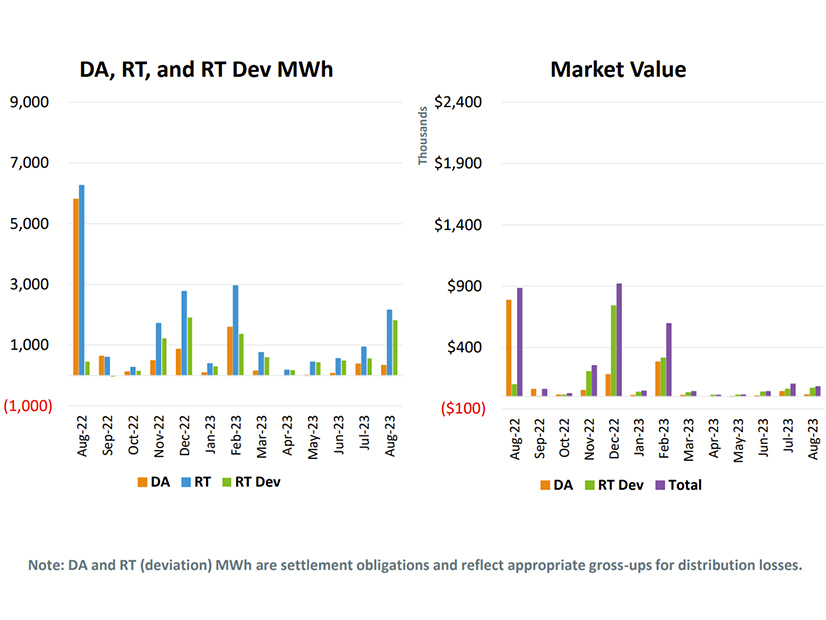ISO-NE COO Vamsi Chadalavada told the NEPOOL Participants Committee about the ISO's market value, and the ISO answers states' draft 2024 budget questions.
COO Report
ISO-NE’s energy market value was about $300 million in August, down from $580 million in July and $1.1 billion in August of 2022, COO Vamsi Chadalavada told the NEPOOL Participants Committee on Thursday.
Chadalavada noted that natural gas prices were 83% lower than the August 2022 average. Net commitment period compensation payments were about $800,000 lower than the previous month and $4.4 million lower than August 2022.
The peak load for the month occurred Aug. 21, which triggered an abnormal conditions alert. Overall, monthly temperatures were lower than historical August averages.
Chadalavada’s report noted that annual 2023 emissions are down from 2022 levels through early August, with the biggest reductions coming from decreased oil combustion.
Budget Clarifications
Prior to the meeting, ISO-NE published a set of responses to questions from the states regarding the organization’s draft 2024 budget. The RTO has proposed a 21.5% budget increase for the coming year. (See ISO-NE Proposes 21.5% Budget Increase for 2024.)
“The budget reflects increases necessary to successfully transition to the clean energy future, as well as catch up on inflation costs that were higher than previously budgeted,” ISO-NE wrote. “While the inflationary pressures will subside, there will still be a need to increase resources in the foreseeable future. At this point, we are still assessing what may be needed for a post-transition paradigm.”
ISO-NE told states that managing the grid amid the energy transition will require increased resources and personnel.
“The number of assets in New England will grow to hundreds of thousands/1 million-plus in number,” ISO-NE wrote, adding that the complexity of its system will increase as it manages more behind-the-meter resources and non-dispatchable weather-dependent resources, as well as shifting load patterns.
“This complexity will increase the workload in ways that are straightforward (e.g., higher volume of asset registrations and transmission interconnections to study and manage) and less straightforward (e.g., changes to adapt the markets and operating procedures, including forecasting, to the aforementioned growth in complexity),” the RTO said.
ISO-NE also elaborated on the portion of the budget increase allocated to existing employee salaries, noting that an ongoing analysis led by an independent consulting firm has indicated that the RTO’s base salaries are below market. The organization said that the unfinished aspects of this analysis will inform future budget decisions and “affect both the 2024 and 2025 salary budgets.”
The PC will vote on the budget at the Oct. 5 meeting, which will be followed by a vote by the ISO-NE Board of Directors. The RTO said it hopes to file the budget with FERC in mid-October.




